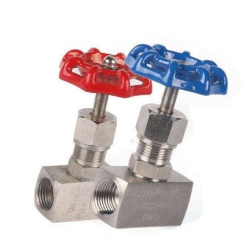vacuum needle valve
Understanding Vacuum Needle Valves An Essential Component in Fluid Systems
In various industrial applications, the management and control of fluid flow is critical. One of the essential components that facilitates this control is the vacuum needle valve. Designed for precision and reliability, vacuum needle valves are widely used in systems requiring stringent flow regulation, such as in laboratories, chemical processing, and pneumatic applications.
What is a Vacuum Needle Valve?
A vacuum needle valve is a type of flow control device characterized by a tapered needle-like plunger that can be adjusted to regulate the flow of gases or liquids. When operated, the needle moves up or down within a valve seat, allowing for precise control over the flow rate. The unique design of the needle provides fine control and the ability to reach very small flow rates, making it indispensable in applications where precision is required.
Applications of Vacuum Needle Valves
1. Laboratory Settings In scientific research, particularly in chemistry and biology, vacuum needle valves are used to control the flow of gases during experiments. Their ability to finely adjust flow rates is ideal for experiments needing precise conditions.
2. Pneumatic Systems Many pneumatic systems rely on vacuum needle valves to control the air supply to various components, enabling smooth and controlled operation of pneumatic cylinders and actuators.
3. Chemical Processing In the chemical industry, vacuum needle valves are employed to manage the flow of reactive chemicals. Their design minimizes the risk of leaks or spills, ensuring safety and efficient operation.
4. Vacuum Systems As the name suggests, these valves are essential in vacuum systems where maintaining a specific atmospheric pressure is crucial. They help in establishing and regulating vacuums in chamber systems, ensuring optimal conditions for various processes.
Advantages of Vacuum Needle Valves
1. Precision Control One of the most significant advantages of vacuum needle valves is their ability to provide very fine control over flow rates. This precision is critical in applications where even slight fluctuations can lead to significant changes in outcomes.
vacuum needle valve

2. Leak Resistance The design of vacuum needle valves ensures minimal risk of leakage. This property is particularly important in applications involving hazardous or expensive materials, where leaks can pose serious risks.
3. Durability Made from high-quality materials, vacuum needle valves are designed to endure various environmental conditions. They are suitable for high-pressure applications and can withstand corrosive substances, ensuring a long service life.
4. Ease of Use The manual or automated operation of vacuum needle valves allows for straightforward adjustments. Operators can easily adjust the flow rate to match the needs of the system without complex procedures.
Selecting the Right Vacuum Needle Valve
When choosing a vacuum needle valve, several factors should be considered
- Material Depending on the application, the valve material should resist corrosion and withstand the fluids involved. Common materials include stainless steel, brass, and various plastics. - Size and Port Configuration The valve size should match the flow requirements of the system. Additionally, the port configuration should ensure compatibility with the piping system in use.
- Operating Pressure and Temperature It's essential to ensure that the valve can operate efficiently within the required pressure and temperature ranges to prevent failure and ensure reliable performance.
- Type of Actuation Depending on user requirements, select a manual or motorized needle valve. Each type has its advantages, with manual valves providing direct control and automated valves offering convenience in larger systems.
Conclusion
Vacuum needle valves play a crucial role in many systems requiring careful fluid control. Their precision, reliability, and versatility make them a vital component in various industries. By understanding their features, applications, and how to select the right valve, engineers and technicians can ensure that they maintain optimal flow control, enhancing the efficiency and safety of their operations. As technology advances and industries evolve, the importance of such precision instruments will only continue to grow, solidifying the vacuum needle valve’s place in modern fluid management.
-
The Key to Fluid Control: Exploring the Advantages of Ball Valves in Industrial SystemsNewsJul.09,2025
-
The Versatile World of 1, 2, and 3 Piece Ball ValvesNewsJul.09,2025
-
Stainless Steel Ball Valves: The Ideal Choice for Efficient Flow ControlNewsJul.09,2025
-
Optimizing Fluid Control with Ball Float ValvesNewsJul.09,2025
-
Manual Gate Valves: Essential for Control and EfficiencyNewsJul.09,2025
-
Everything You Need to Know About Butterfly ValvesNewsJul.09,2025
-
The Versatility of Wafer Type Butterfly ValvesNewsJul.08,2025




